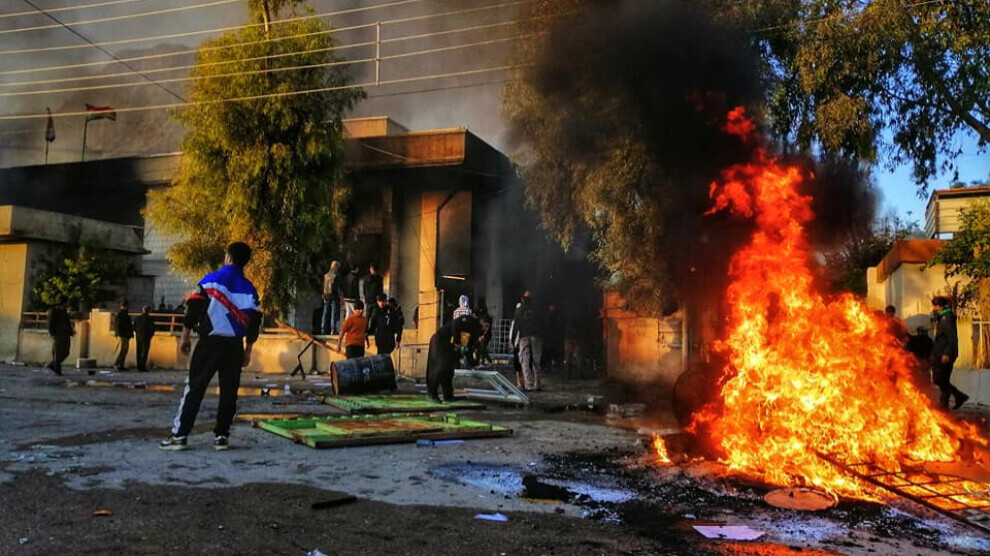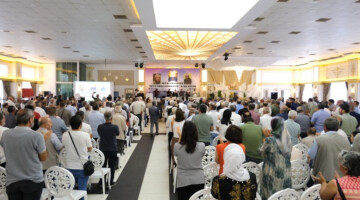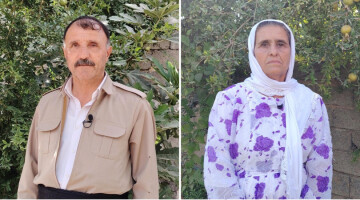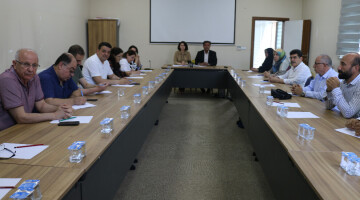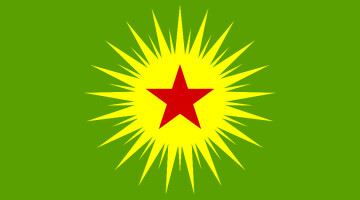The number of demonstrators killed in the Sulaymaniyah city of South Kurdistan since the protests began on December 2 has risen to six. All deaths were caused by the use of firearms by security forces of the two major governing parties, KDP (Kurdistan Democratic Party) and PUK (Patriotic Union of Kurdistan). Among the victims are also at least two minors. One of the victims is a sixteen-year-old, named Emir Ubed, who was shot dead yesterday in Said Sadiq. He died of his injuries on Tuesday in a hospital in central Sulaymaniyah.
Also in Said Sadiq, a twelve-year-old named Herêm Eli was shot dead today. The death has been confirmed by the district press spokesman, Taha Ahmed. According to Ahmed, ten demonstrators and four police officers have also been injured in Said Sadiq in the past 24 hours.
In Takiya near Chamchamal, security forces also opened fire on a demonstration. A 28-year-old activist was killed, and four others were injured, some of them seriously. In response, protesters set fire to the local KDP office. Three injured people were reported from Ranya. In Kelar in the Germiyan region, security forces were thrown stones by protesters. In Xurmal, Qeladiz, Kifrî, Zerayen, Pîremegrûn and Şarezu, too, several people took to the streets again.
Background of the protests in South Kurdistan
Frustrated by South Kurdistan’s regional government in Hewlêr (Erbil), protests have been flaring up and down for months. Resignation and pessimism are spreading, especially among the younger generation, which is demanding reforms, co-determination and democracy. The economic stagnation, rampant youth unemployment and the omnipotence of the clans is making young people desperate. The government is incapable of providing elementary services, civil servants' salaries have again not been paid for months or have been cut, university graduates have no prospects, and there is no regular electricity or a well-functioning water supply anyway. The region imports everything, but produces nothing, and is largely dependent on the Ankara regime. Occupation attempts and attacks by Turkey that violate international law are tolerated or even supported. The name Barzani characterizes the balance of power, and the nepotism and corruption that have become established in recent years are becoming increasingly visible. Any resistance to the clan's concentration of power is crushed.
In April, the Iraqi central government finally stopped transferring its monthly 12.6 % share from the state budget to the Southern Kurdish leadership because the KDP in return had not delivered the planned 250,000 barrels of oil to Baghdad. Hewlêr prefers to export South Kurdistan's oil independently of Iraq, for example to Turkey. There it currently delivers 450,000 barrels per day. But the lack of the budget share, which corresponds to currently about 900 billion Dinar (623 million Euro) per month, put the budget of the autonomous region under pressure in the course of the Coronavirus pandemic. Many of the demonstrators are public employees, a large number of them teachers - South Kurdistan has a large civil service, about one million of the five million inhabitants of the region are state employees. They have had to endure missing wages for years.
Although Baghdad and Hewlêr reached an agreement last week in the dispute over the budget share, the announced salary payments proved to be nothing more than hot air. Meanwhile, the protest movement has announced that it will expand the demonstrations.
RELATED NEWS:

